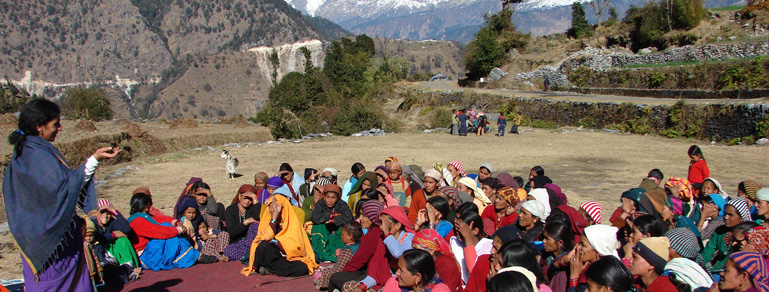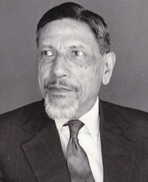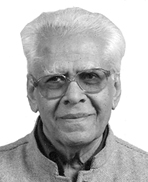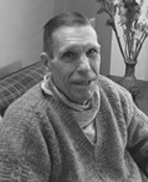|
|
 |
Uttarakhand Seva Nidhi
Paryavaran Shiksha Sansthan (USNPSS) |
The Uttarakhand
Seva Nidhi is a public charitable trust
founded in 1967. We have been working since
1987 with village communities in Uttarakhand,
when we were appointed a nodal agency by the
Ministry of Human Resource Development,
Government of India, to undertake
environmental education programmes in
schools and villages in the mountain
districts
of Uttar Pradesh, now Uttarakhand.
Uttarakhand, located in the Central
Himalayas of northern India, is a fragile
ecological zone where human activities can
cause extensive land degradation and
significant societal impacts. Difficulty of
access had protected this region from
external influences and allowed the people
living here to continue their traditional
and usually sustainable practices. With the
advent of education and globalisation,
facilitated by roads, telephones,
television, internet etc., their lives are
transforming rapidly. Other factors like
climate change and migration are compounding
the challenges.
Over a period of time, our activities
increased and diversified and, therefore,
all our programmes were consolidated
under a new body, the Uttarakhand Seva Nidhi
Paryavaran Shiksha Sansthan (USNPSS), a
registered non-profit society. In English,
the name means the Uttarakhand Environmental
Education Centre (UEEC).
|
 |
History |
 |
 |
 |
 |
| Shri B. D. Pande |
Sri Madhava Ashish |
Shri Anil Bordia |
Dr. M. G. Jackson |
|
The government of India's New Education
Policy (NEP) announced in 1986, specifically
stated that there was a paramount need to
create a consciousness of the environment
and that it should be integrated in the
entire educational process. In the same
year, the Planning Commission of the
Government of India set up a group under the
Chairmanship of Sri Madhava Ashish of
Mirtola Ashram, Almora, to make
recommendations for a project on giving an
environmental orientation to education in
the hill areas of Uttar Pradesh. This
meeting was attended by Anil Bordia, then
additional secretary in the Department of
Education, Government of India and JC Pant,
then Education Secretary in UP. During the
deliberations of this group, it became quite
clear that a number of voluntary agencies of
Kumaon and Garhwal would have to be involved
for this purpose. Further, a non-government
agency situated in this region could provide
leadership to the project. Accordingly, Anil
Bordia and JC Pant met BD Pande, ICS (Retd),
former Governor of West Bengal and Punjab,
who had settled in Almora and was at that
time Chairman of the Uttarakhand Seva Nidhi
(USN) and requested him to lead the project
through it.
The USN then set up a special executive
committee with BD Pande as the Chairman and
Sri Madhava Ashish, DP Joshi (a retired
Chief Conservator of Forests), Madan Lal Sah
(banker and educationist) as members and
Lalit Pande as the honorary secretary. This
committee guided the formulation and
development of the programme, whilst Lalit
Pande, an alumnus of the Doon School and IIT
Delhi, who had returned from the USA with a
PhD in Mechanical Engineering, introduced
the activities at the ground level and
identified local partners for doing so. The
Government of India provided financial
support to start the activities.
The environmental studies workbook for
schools was conceptualized by Sri Madhava
Ashish and developed by Dr MG Jackson, a
former professor at the GB Pant University
of Agriculture and Technology, Pantnagar. He
was helped, among others, by KS Suyal, then
Principal of the Gandhi Intermediate College
in Panuanaula and SD Pandey who translated
the materials. Dr GP Pande worked on the
actual training of teachers for many years.
Initial impetus for the Balwadi programme
came from Radha Behan of Laxmi Ashram,
Kausani and other Gandhian workers in the
region familiar with Gandhiji’s concept of a
Balwadi. Among others, Champa and Rama Joshi
played a pioneering role in the development
of the programme.
The valuable guidance of government
officials like Anil Bordia and MC Pant,
later Director of Education in Uttarakhand,
as well as their colleagues, was critical in
those early stages. |
|